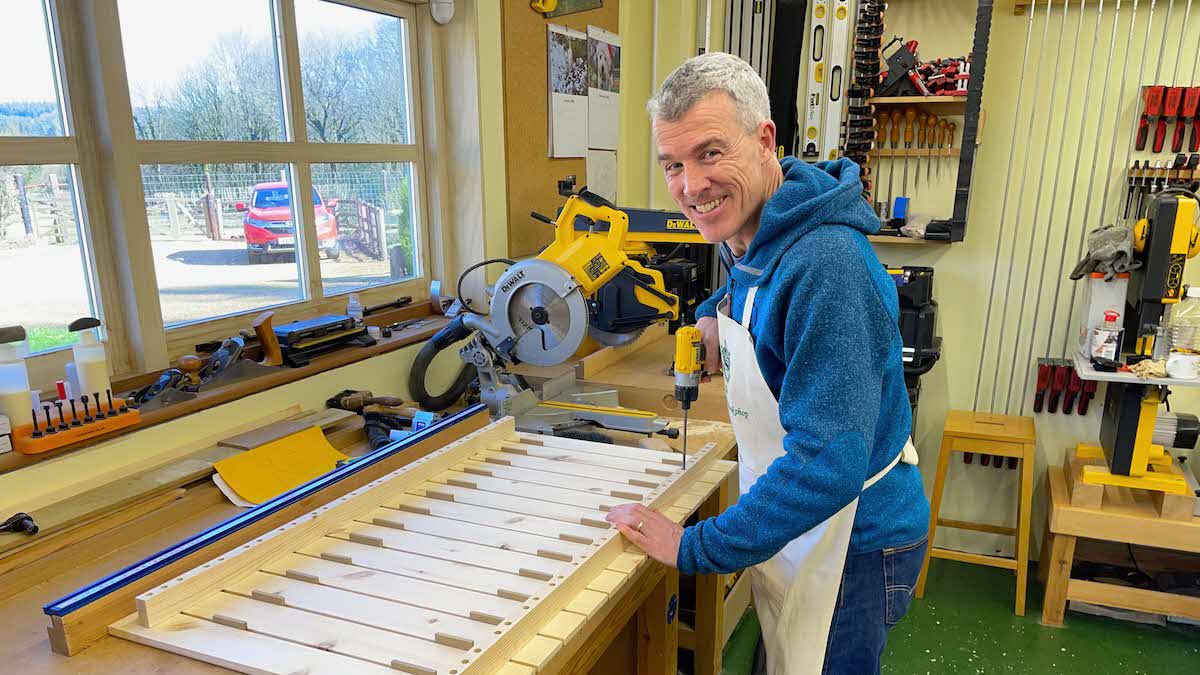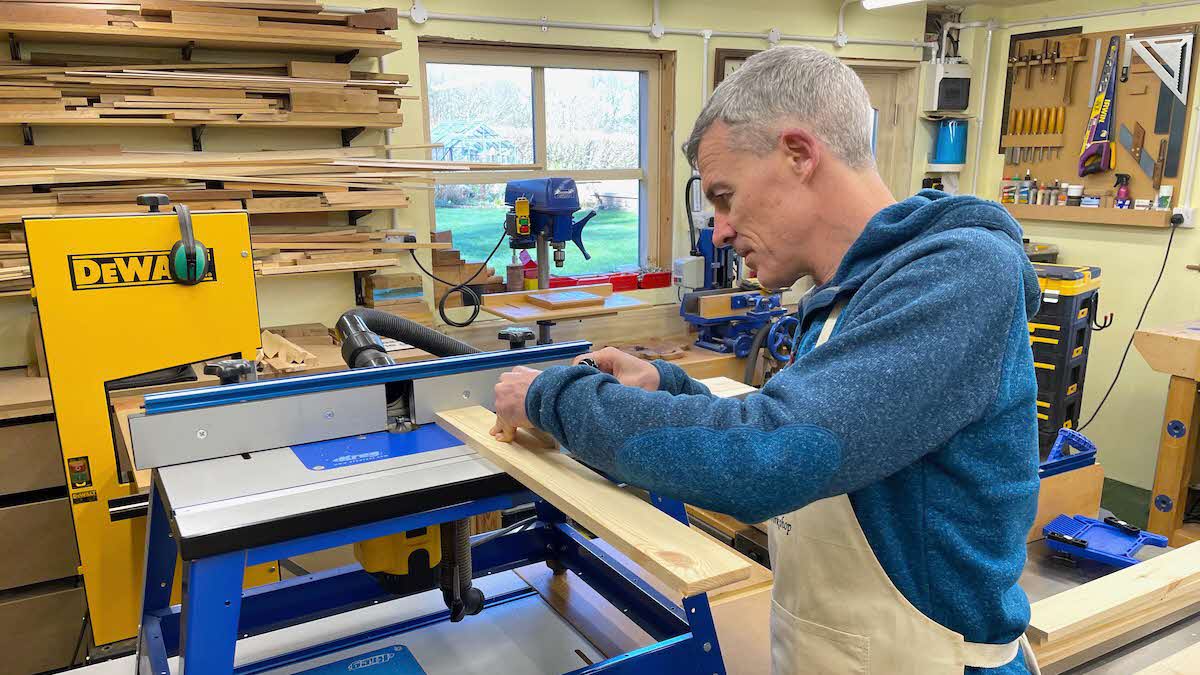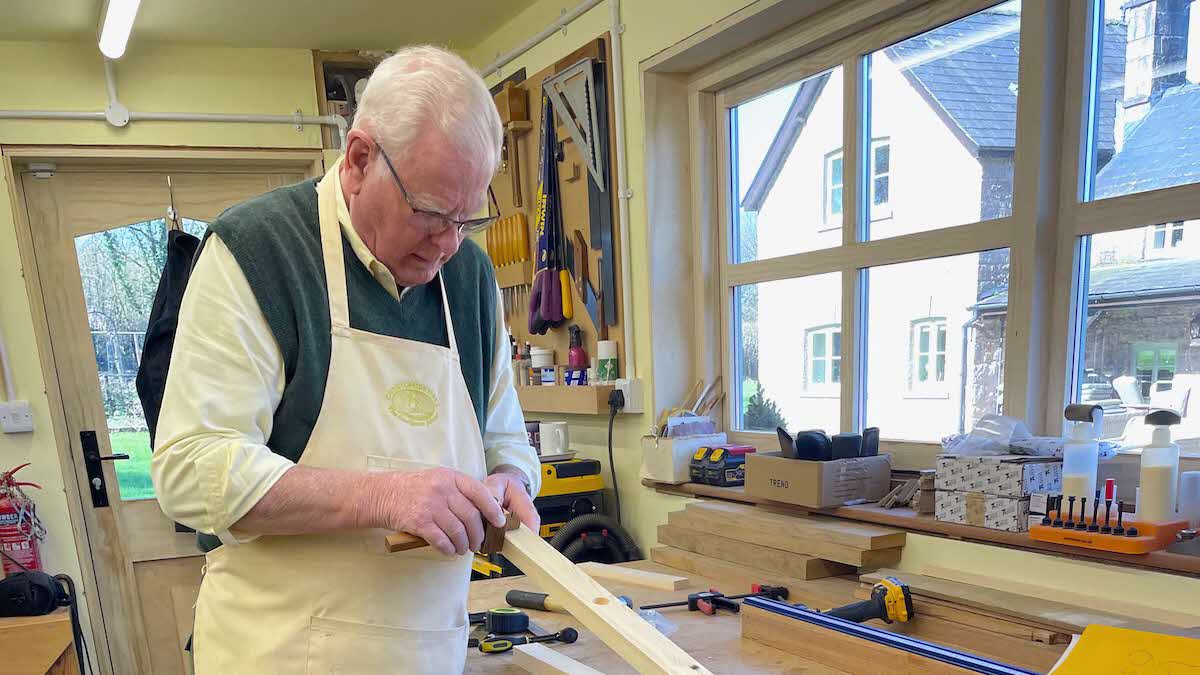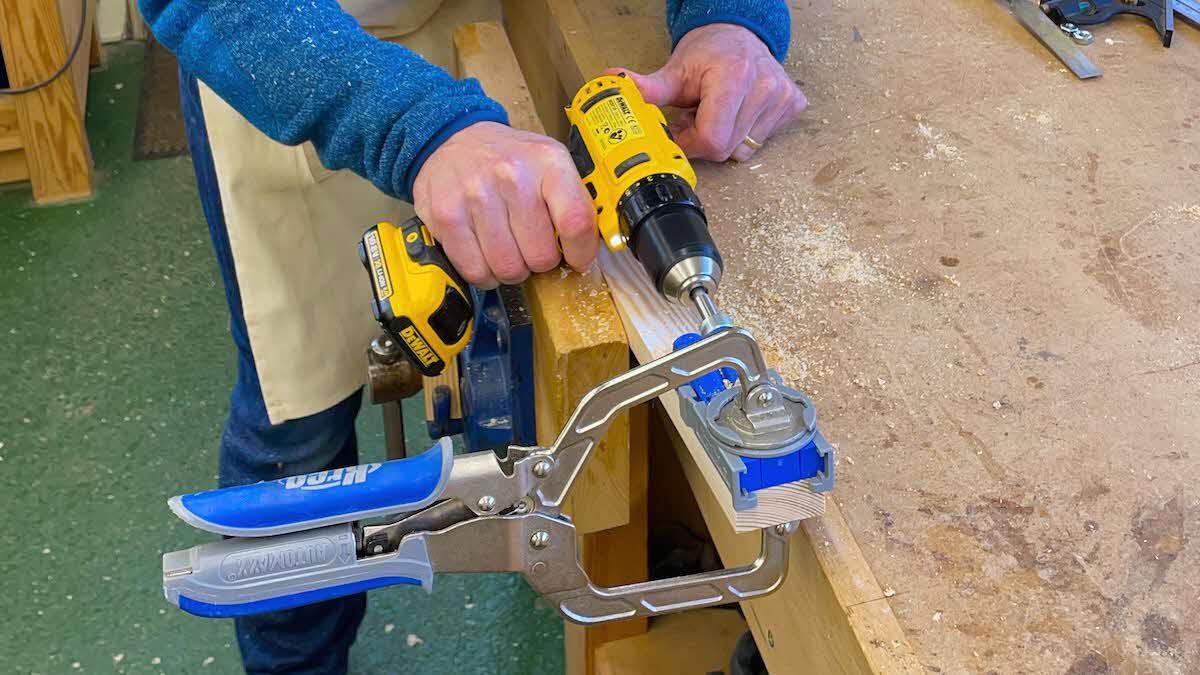Book a Club campsite
Explore hundreds of Club campsites and plan for stays throughout the year. There are plenty of locations to choose from, search and book today.
Book nowJonathan Manning attends a furniture-making course led by CL owner and master craftsman Christopher Hall
 Happy in his work: Jonathan assembles the table top
Happy in his work: Jonathan assembles the table top
Years ago, when we were newlyweds, the manager of a local furniture store gently persuaded us to buy a waxed rather than varnished kitchen table. Yes, he said, the varnish is hard-wearing and low maintenance, but a kitchen table gradually becomes an autobiography of family life. “Do you want an ‘Etch A Sketch’ version that wipes clean every night, or a ledger that records the highs and lows of meal times?” he asked. Sure enough, as we approach our silver wedding anniversary, that same table now bears the signs of mishaps and is associated with memories of tears and laughter.
Among the timber traumas is a black circle where one of our boys plonked a red-hot frying pan during an early attempt at a cooked breakfast, a red wine birthmark from a party spillage that went undetected overnight and a mysterious ‘NO’ in black ink. Despite the blemishes, the idea of sanding down the table and erasing our mealtime history is simply unthinkable.
But what if it were possible to start creating such a time capsule one step further back, beginning not with the finished table, but with planks of wood and a handful of screws, nuts and bolts? That’s the irresistible concept behind the plans of Christopher Hall, a master joiner and new campsite owner.
Having built Woodhall Field CL in a dreamy location not far from Monmouth, with fully serviced pitches that would shame many a major campsite, Christopher has devised a weekend course during which Club members can make a table and stools that he has designed specifically for motorhomes. A clever leg arrangement, not dissimilar to that of a deckchair, sees the furniture fold flat to save space, while the use of lightweight pine protects the vehicle’s payload.
 Routing the table top planks
Routing the table top planks
The prototypes in Christopher’s workshop look highly professional and fiendishly complicated. Imagine unboxing flat-pack furniture and finding that, before you have a chance to rant at the instructions and puzzle over the surplus dowel, you first have to cut all of the pieces with to-the-millimetre precision, route the edges and drill the holes.
My previous woodworking experience has been confined to hand tools and a rough-and-ready finish. The cockeyed bird boxes I made may delight blue tits in the garden, but holiday furniture has to be perfect. The prospect of milk on my cornflakes or coffee in my mug always slopping out towards a wonky table leg is unthinkable. And as for the risk of splinters from the stool...
Fortunately, Christopher is an experienced instructor – more than 500 people have enrolled on his courses – blessed with an Aladdin’s cave of tools in a meticulously tidy workshop. Clamps and saws hang on the walls with the neatness of a Sandhurst parade, an army of power tools is ranged battle-ready in drawers, and vast vacuum cleaners automatically suck away sawdust.
 Master joiner Christopher Hall
Master joiner Christopher Hall
The guardians of the Crown Jewels gave Christopher the nickname, ‘The Gentleman Joiner’, during a construction project at the Tower of London, and it has stuck. A sharp crease runs down the front of his trousers, his shoes are highly polished and his apron is spick and span.
We start with a succinct safety briefing – “everything in the workshop bites!” – and then set to work, measuring planks before using a powerful mitre saw to cut the leaves for the top of the table. The saw completes the task in seconds, and is followed by a fast-spinning router that trims all of the top edges to a beautifully round and regular finish. All I have to do is pay attention as I guide the wood along a rail.
Christopher instructs like a tennis coach, changing how I grip the wood, and each time he steps away to consider the next task I take it as a vote of confidence.
A pillar drill makes light work of boring holes for recessed bolts and screws, descending each time to the perfect depth. All I have to do is line up the drill bit with precise pencil marks on the wood, although Christopher emphasises the importance of keeping your workstation spotlessly tidy. Even a small curl of sawdust under a baton could fractionally alter the angle of the hole.
 Using a pocket jig
Using a pocket jig
Having cut the legs to length, a vertical sander makes short shrift of smoothing one end into an arc, while a pocket hole jig lets me drill holes at a shallow angle for the ladder-style support struts. It’s the first time I’ve seen many of these tools, let alone used them, and there’s an abundance of opportunities to have a go. Christopher’s basic approach is to explain, demonstrate, then let me loose to do the rest.
Only once do I make a blunder, drilling right through a piece that only needed a 10mm deep hole. Sod’s Law made sure it was the last plank of that size, so Christopher bites his tongue, picks up another piece of wood, cuts it to size and runs it through a thicknesser (another novel piece of kit). In just a couple of minutes I’m having another go, lesson learned.
From here, the assembly starts, screwing together the top, bolting on the legs then micro-adjusting them with the aid of a spirit level to make sure they are absolutely flat – there’ll be no spilled milk or coffee on this table. We repeat the process with the stools.
“Are you going to paint or stain?” asks Christopher. Originally, I had pictured a whitewashed table on a sunny pitch overlooking the sea, food on the barbecue, condensation beading on my glass – but then I remembered our kitchen table. This new surface is a blank canvas whose subsequent nicks, blots and, I daresay, burns, have the chance to become the autobiography of our touring life. “I’ll stain them,” I reply.
A weekend woodworking course to make the table and stools, including all materials and instruction and three nights camping at Woodhall Field CL (motorhome only), costs £250. The next date is 13-14 July 2024. (Pitches can be booked at the CL without taking the course.)
Info: christopherhall.co.uk
The Quiet Worshop, Cambridgeshire
Spend two days on this course (£220) making a stool, then weaving the seat.
Info: thequietworkshop.com
Stay: Cambridge Cherry Hinton Club Campsite
Chippendale Internatiional School of Furniture, East Lothian
During this Woodturning Weekend (£450), you will learn how to use a lathe and make a stool or plant stand.
Info: chippendaleschool.com
Stay: Yellowcraig Club Campsite
Cheshire Woodworking, Cheshire
Master the basics of turning wood on a two-day course (£260), using tools such as a roughing gouge, skew chisel and bowl gouge.
Info: cheshirewoodworking.co.uk
Stay: Chester Fairoaks Club Campsite